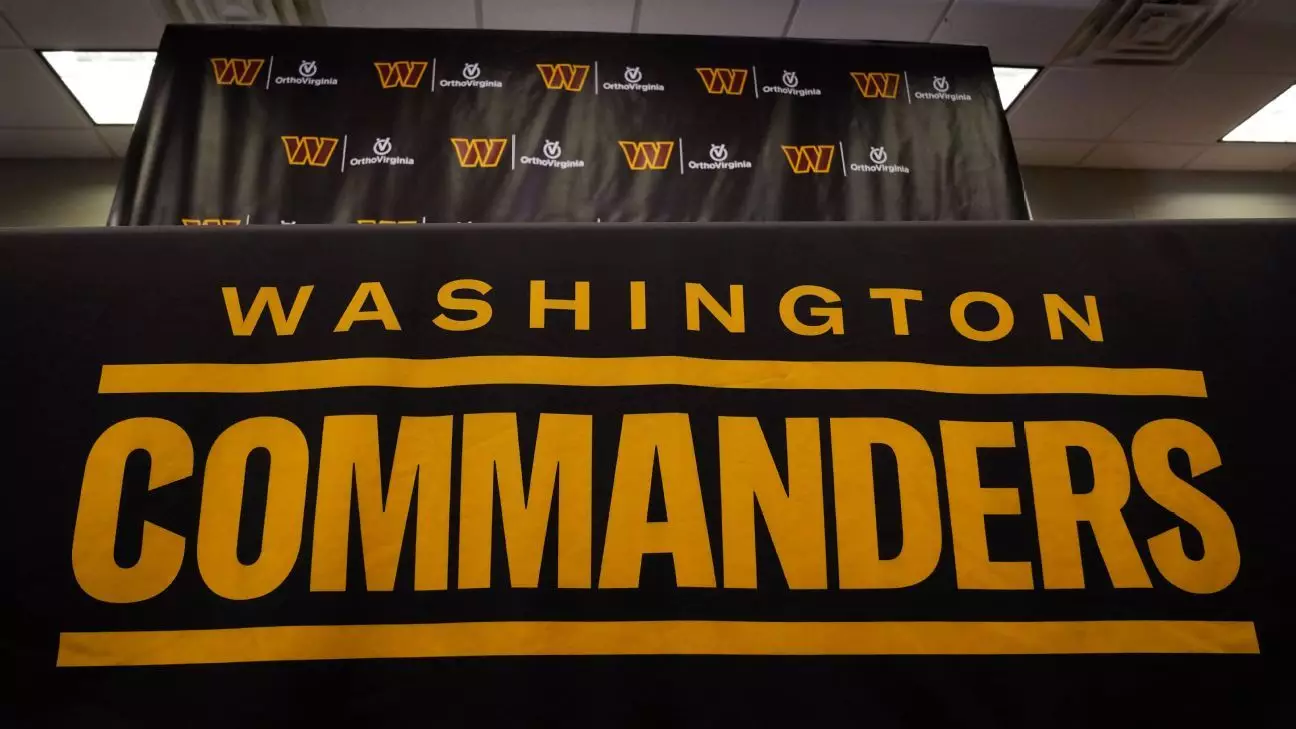The Washington Commanders, once a proud franchise with a storied past, are currently trapped in a swirling storm of uncertainty regarding their potential return to the nation’s capital. Just earlier this week, optimism reigned supreme as rumors floated about the team’s potential relocation back to the RFK Stadium site—a venue steeped in history for the Commanders. However, a drastic twist of fate emerged on Thursday after a crucial land transfer provision was conspicuously absent from a new government spending bill. This has left fans and officials alike questioning the feasibility of the Commanders’ long-anticipated return to D.C.
What’s at Stake: The Land Transfer Dilemma
The core issue at hand revolves around a 170-acre parcel of federal land that many believed would be key to the Commanders’ return. Initial drafts of the spending bill included a provision for this land transfer, igniting hopes not only among team officials but also within the broader Washington D.C. community that has been vocal about a desire to bring the football team home. The absence of this provision has stirred anxiety, as it pushes the Commanders’ ambitions further down the road—a path rife with complications and uncertainties.
Mayor Muriel Bowser emphasized the repercussions of this legislative oversight during a Thursday press conference. She was quick to counter misinformation circulating on social media, specifically remarks from Elon Musk regarding the inclusion of substantial funding for a new stadium. Bowser articulated that the spending bill does not allocate federal funds for a stadium; rather, it was simply a resolution aimed at facilitating the necessary land transfer. This clarification is crucial because without such funding tied to a land transfer, the potential for a new venue diminishes significantly.
The Implications for the Commanders
Should this spending bill fail to pass with the land provision included, the ramifications for the Commanders could be severe. With the current lease on the land stretching only 14 more years and the team’s owner, Josh Harris, expressing desires for a new stadium by 2030, the clock is ticking. Mayor Bowser’s stark acknowledgment that “I don’t know if there’s another path this session” underscores the precarious nature of the negotiations currently at play.
The Commanders have a choice: they can opt to remain in Landover, Maryland, where they have played since 1997, or they can push for development at the RFK site to reclaim their historical roots. However, building a new stadium at their current location in Landover comes with drawbacks—not the least of which is the growing craving among fans for a return to the city where the team carved out its identity. With Maryland’s Governor Wes Moore keen to keep the team in the state, the Commanders find themselves at a crossroads that could dictate the trajectory of their franchise for years to come.
As the Commanders look toward the future, one must consider whether there exists a realistic timeline for advancing their goals. The absence of the land transfer provision means that advocates for a D.C. return could face a long and convoluted process. The prospect of continuing negotiations in the new Congress next year brings with it uncertainty and potential shifts in political priorities, impacting the Commanders’ quest for a new home.
It’s worth noting that RFK Stadium represents not just a former home, but a cherished chapter in the life of the franchise. Between 1961 and 1996, this stadium was the epicenter of five Super Bowl appearances, three of which ended in glorious victories, etching the team’s legacy into the annals of sports history. Such a rich legacy, coupled with the potential acquisition of prime real estate for development, is why the RFK site remains the preferred destination among team insiders.
Ultimately, the unresolved land transfer throws into sharp relief the need for focused dialogue and decisive action among stakeholders. The uncertainty surrounding the Commanders’ future underscores a broader issue within D.C. politics and city planning, where competing interests often hinder progress. As Mayor Bowser aptly pointed out, the RFK site is currently an underutilized area that has become a blot on the city’s landscape. The time for investment in revitalizing such a space is now, before opportunities slip through the cracks.
The situation surrounding the Washington Commanders is not merely about football; it reflects larger themes of community identity, legacy, and urban development. The aspirations of returning to RFK Stadium are symbolic of a deeper, collective desire to reclaim the past while building for the future. Whether the Commanders can navigate this complicated landscape remains to be seen, but one thing is clear: they will need unwavering support from local officials and fans alike to conquer the considerable challenges that lie ahead.


Leave a Reply